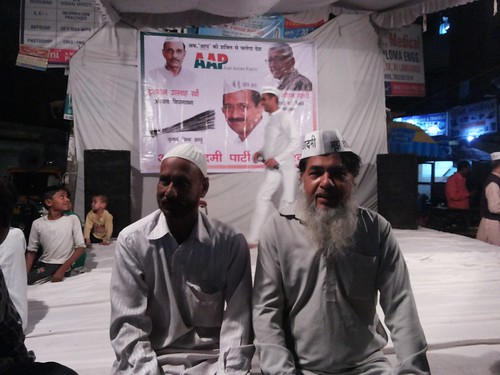By Kashif-ul-Huda, TwoCircles.net,
In about 45 days, we will know which collection of parties is going to form the next government in India. Indian elections are less about issues and more about voting blocks. While most voting blocks are tied to political parties organized on the basis of caste or regional identities there is one vote block that is up for grabs in every election or so it seems. Muslims who have been loyal Congress vote banks for a long time since Indian independence have for some time made it known that they will vote strategically at the local level that best serves their interests.
This thinking has produced interesting results with Muslims voting for communist parties to caste-based parties like BSP & SP to parties that were allies of right-wing BJP to in some places even BJP itself. No party is untouchable but some may be favorites.

No wonder all parties even BJP (the least favorite of the Muslims) are trying to grab a piece of the Muslim vote pie. This vote is big enough to matter on hundred-odd parliamentary seats and polls at a higher rate than other vote banks. Many of these seats where Muslims are a factor are reserved for Scheduled Caste candidates contributing to the disenfranchisement of Muslims. In the last Lok Sabha there were only 30 Muslims. For a proportional representation there should be at least 70 Muslim MPs.
Making reserved Muslim-majority seats effectively means that no Muslim can contest for those seats- a legacy of anti-Muslim discrimination of 1950 Presidential Order that made only Hindu dalits eligible for benefits under Article 341 (Budhists and Sikhs were added later but not Christians and Muslims). Other factor that contributes to lower Muslim representation is the presence of multiple Muslim candidates from major parties for the same seat splitting the votes amongst them and ensuring the victory of candidate that the community least wanted elected.
But can Indian Muslims be considered a community? There are many differences based on caste, sects, language, culture, and political views. These differences were very apparent as we drove across Uttar Pradesh. Parties and reasons for supporting them are varied from constituency to constituency. Even among family members there are differences on which party should get Muslim vote. Clearly, there is no Muslim vote bank.
In this election series we will bring stories from the ground covering various aspects of the election to bring to you stories, issues, and people that otherwise you will miss in the media circus around Namo vs RG vs AK.

